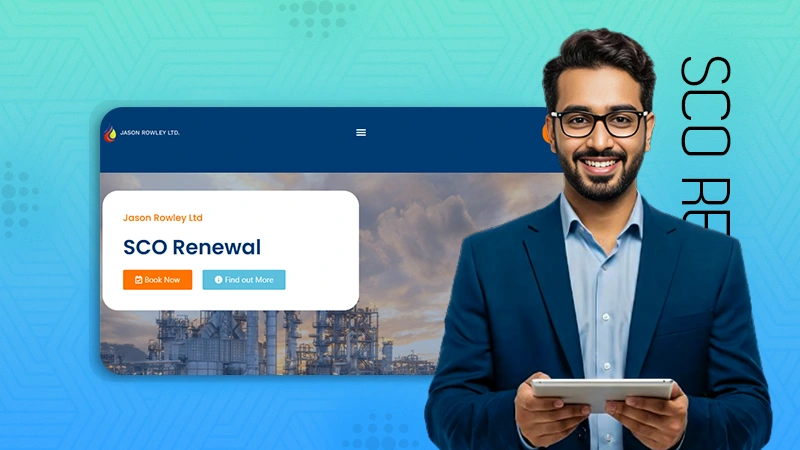The Age Verification Solution: A Safe Bet to Keep Minors Away
Many businesses are still oblivious to the consequences of age verification. Minors gambled and laundered money on gambling sites in the United Kingdom, resulting in hefty fines for gambling companies.
Given the circumstances, regulatory authorities have enacted stringent AML and age-restricted selling regulations to eliminate minors’ money laundering and online gambling addiction.
As a result of rigorous changes in verification regulations, companies need to implement in-depth insights into age verification, its research methods, and its benefits. Several industries require age verification technology in their system applications for a myriad of purposes.
What does Age Verification Mandate?
It is now a methodology where the user’s identification document is vetted to ascertain whether or not the age provided is legitimate. The technique can be performed analog or digital. Manual verification seems to be no longer utilized because it would be costly and driven by emotional error. Throughout this situation, age verification provided a glimmer of hope. Many sectors seem to be using this verification approach to substantiate their users’ ages through remote monitoring, irrespective of where they are in the globe.
Also, Read This: 4 Essential Benefits of Digital Identity Verification
How to Implement Online Age Verification?
Age verification is a fast and easy technique for obtaining rapid results, saving both the embezzlement officer and the compliance department effort and resources.
- The respondents will be asked to only provide their birth certificate as well as to show a government-issued identification number or other identity proof incorporating their DOB, such as a driver’s license, passport, and perhaps other documents bearing their DOB.
- After screening the document, the system compares the date of birth on the document to the one provided by the user.
- The results are sent to the end-user and saved in the back office once the age is verified.
Why Must Major Corporations Require Online Age Verification?
Adherence with Regulatory Requirements
KYC/AML compliance is among the key reasons why a certain company must verify the age of its clients. Age verification has become mandatory in several countries, including the United States and the United Kingdom, for a variety of industries. So when an organization refuses to adhere to said KYC regulations, they face severe consequences. Regulatory requirements ensure greater company market profits and create massive revenue.
Social Responsibility in the Workplace
Companies that produce age-restricted products might need age verification to illustrate their commitment to the public good. Day after day, youngsters suffer from the effects of the abuse of alcohol and drugs; in 2015, 442 children died as a result of a drug overdose in the United States. To help reduce the number of deaths caused by underage drinking, alcohol retailers should use age verification.
This will certainly assist the liquor store to recognize notoriety for becoming a governmental and ecologically inclusive enterprise.
The Perils of False Identities
Youngsters occasionally make purchases online utilizing their mom and dad’s or elders’ identification documents. In such circumstances. For example, if a business doesn’t even use identity verification, it stands to lose credence and is likely to face punitive tariffs.
Read Also: How to Build an E-commerce Website from Scratch
Organizations in Need of an Age Verification Solution
It is indeed a popular misunderstanding that internet gaming sites should always authenticate the age of their patrons, however, the truth would be that performing KYC and KYCC is indeed a crucial need for this kind of business.
- It greatly helps the video game industry is trying to retain authorized potential customers thereby maintaining underage children at bay. Furthermore, staying compliant with KYC, including age verifications, aids the gaming industry in avoiding hefty fines.
- In the e-commerce sector, age verification is a frictionless experience that helps mitigate the risk of selling products to minors.
- It ensures that age-restricted drugs are not purchased by underage customers in pharmacies and hospitals.
- Age checks are performed by NGOs and government pension funds to ensure that services are only provided to authenticated senior citizens.
- It can be used in e-voting to reduce the time and cost associated with the election process. Furthermore, it eliminates the possibility of sophisticated election fraud.
Finally, Some Final Thoughts
Because of increased awareness and the fact that it is now on the government’s agenda, online age verification isn’t going away. Businesses are becoming increasingly aware of the importance of preventing minors under the age of 18 from accessing age-restricted goods and services. And now is the time to act; companies that do not act quickly enough risk not only losing their reputation but also going out of business if a significant fine is imposed. Thus, performing KYC, including age verification, is the only way to protect the company and children from purchasing age-restricted products or coming across age-restricted content.
Next, can read: Online Address Verification in Customer Authentication







